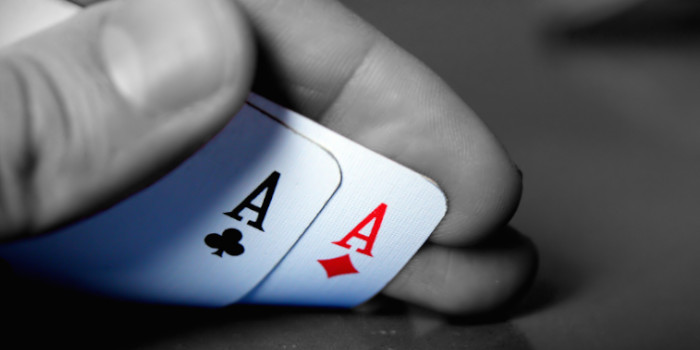New York Poker Finds New Sponsor in Sen. Addabbo

Poker in New York is again a topic of much agitation with a new draft bill being pushed through by Senator Joe Addabbo. The Empire State has known previous failures to see poker legislation approved back in 2016 and 2017. Is 2019 going to be different?
Joe Addabbo Outlines Poker Legislation for New York in 2019
On Monday, January 7, Racing Gaming and Wagering Committee Chairman Senator Joe Addabbo filed a draft bill outlining a legal future for poker in the Empire State. Previous attempts have been unsuccessful, with legislation always failing to make it in the Assembly where a lack of interest or votes always let to its demise.
The now proposed S.00018 bill has one main stated goal right on top of the document – proving that poker is in fact a game of skill as opposed to a game of luck, which has been one of the main arguments against the game. If poker is successfully established as the former, though, then the game wouldn’t be subject to “gambling law.” Here’s what the bill reads in its summary section:
Allows certain interactive poker games to be considered games of skill rather than games of luck; includes definitions, authorization, required safeguards and minimum standards, the scope of licensing review, and state tax implications; makes corresponding penal law amendments.
The Defining Case of the United States v. DiCristina
The bill is not exactly revolutionary as it doesn’t want to change an entire premise any more – it simply wants to draw on already won fights. Under New York State law, poker is a game of skill as outlined in the case of the U.S. v. DiCristina, a case looking into violations of the Illegal Gambling Business Act (IGBA), where poker was ruled as a game of skill in the end:
The concern that the IGBA would criminalize non-commercial private poker games was assuaged by comments mentioning the requirements currently set forth under § 1955(b)(1), and not by comments indicating that poker is a game of skill.
Senate Bill 18 also outlined the pervasiveness of the game and the need to have a framework that guarantees customer protection. In other words, poker is “legal as such”, but a law would be needed to guarantee that players are safe.
The Bad Actor Clause
The bill has outlined a scenario where New York would look the other way on operators that have been providing their services to the state’s citizens while the ban was still in force. Put simply, if such violations are established, the brand and their affiliates may be banned in the state and not be allowed to ever start their card rooms there. S.00018 specifies:
“knowingly and willfully accepted or made available wagers on interactive gaming (including poker) from persons located in the United States after December thirty-first, two thousand six,”
“knowingly facilitated or otherwise provided services with respect to interactive gaming (including poker) involving persons located in the United States,”
The language seems to be very specific as to who might get locked out of the state in the end with the “facilitating clause” having specifically affiliates in mind.
What Is the Legal Side of the New York Poker Arrangement?
S.00018 is quite straightforward and clear in its provisions mandating the entire legalization process and specifically what future operators may expect from the industry:
- Licenses will cost $10 million per operator
- Operators will be exempt from taxation in the first 60 days of operation, which will be considered part of the license fee
- Brands will be taxed 15% of their Gross Gaming Revenue (GGR)
- The state is capping the available licenses at 11
- The Empire State is happy to work with both private businesses and tribal gaming operators
This outlines the renewed efforts of New York to pass a legal gaming bill specifically designed to help online poker take off in full across the Empire State. What is needed now is back-up from the Assembly. In the past, Assemblymen Clyde Vanel and J. Gary Pretlow were supposed to back a bill in 2018 and help bring in extra votes. Vanel kept his end of the bargain but Pretlow had a change of heart, as he later specified that he’d much rather remain focused on sports betting.
With 4 years experience as an analyst, Julie—or ‘Jewels’, as we aptly refer to her in the office—is nothing short of a marvel-worthy in her attention to the forex and cryptocurrency space as she quickly became the first pick to co-pilot education to the masses with Mike.



